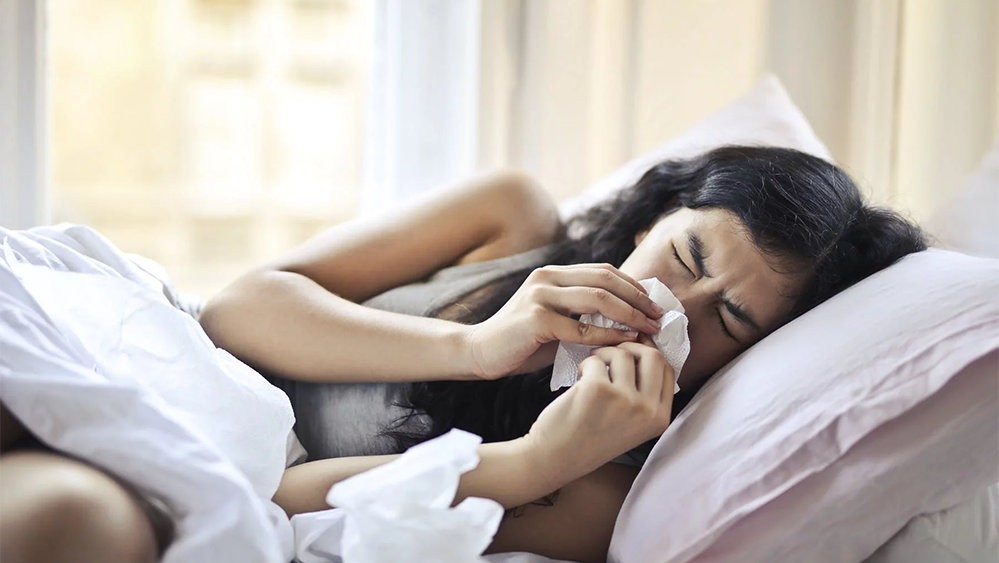Allergies are always a pain, and nobody likes having them. Our allergies are triggered for many reasons, from eating the wrong food to breathing in pollen and the like. When it comes to the latter, you can prevent or reduce the risk of triggering your allergies in many ways. These aren’t guaranteed, and it’s always best to get a health professional’s opinion, but these remedies and preventive measures can still provide considerable relief.

Below are some steps to treating or preventing allergies.
Purify and Filter Your Air
If you’ve been sneezing inside your house but not when you go out, standard advice is to check your vents. Air quality heavily affects our health, and “bad air” can trigger allergies. The ducts in our house catch, filter, and accumulate dust, so regular AC tune-up and maintenance should be a part of your seasonal chores list.
Alternatively, an air purifier with HEPA filters can capture allergens in the air. Using vacuuming your house regularly also helps. The best way to keep your air clean is to keep your home clean, as mold, bacteria, and dust mites develop when a house is left untidy.
Make Your Bedroom Allergy Free
We spend many hours in our bedroom, where most allergens gather. This is why many times during the year, we often wake up with sniffles or get an allergy attack first thing in the morning. Use hypoallergenic pillowcases, mattresses, and other blankets to reduce the chances of allergens, and make sure to clean your bedroom thoroughly at least once a week. Weekly changing of your sheets and pillowcases will also help, and vacuuming as often as you can.
Get Rid of Draft
The outdoors might not sound great when you realize it’s filled with dust-based allergens. Pollen, dust, and other environmental allergens are rife, especially during certain seasons. There’s a simple solution to this, however: close your doors and windows. Of course, that’s simpler to say than to do.
Include Your Pets in the Equation
If you have pets and allergies, keeping your fur babies away from your bedroom is best. Pet fur can carry various allergens like dust and pollen, and you don’t want those to stick to your bed where you sleep. So along with deep cleaning your bedroom and vacuuming all the dust, keep your room allergy-free by restricting it from your beloved pets.
Probiotics Help
Research has shown that taking probiotics can help fight off allergies. While the investigation is still ongoing, the results have been noticeable. Gut flora affects our immune systems, affecting the body’s preliminary response to allergies. Probiotics like Lactobacillus casei Shirota balance the antibodies that help prevent seasonal allergies. Even if the study is ongoing, there’s no harm in taking probiotics when you feel like you’re coming up with an allergy attack.
Try Saline
Here’s a simple remedy you can try: saline. The saline solution in a nasal spray can mitigate different kinds of allergies. It helps the nasal passage and sinus become moist while preventing the inflammation of the inside of our nose. Some people prefer a neti pot, while others use a nasal spray. Regardless, if you’re coming down with allergies, this is something new that you can try.
Use Essential Oils
Essential oils often get negative attention for being touted as a cure-all. They’re not a panacea, but essential oils can still be helpful. Essential oils like eucalyptus, thyme, lavender, and many others are anti-inflammatory and can relieve a clogged nose or a swollen eye. However, using them directly or entirely can cause adverse effects like irritation or headaches, so always remember to dilute them before using them. Be mindful of where your essential oils are sourced, as the quality can significantly affect its effects.
Proper Hygiene is King
Cleanliness is critical and, as mentioned throughout this article, it can reduce the risk of allergies. But this isn’t just for cleaning your house and your hygiene. After staying outdoors for quite some time, a shower can remove the allergens that landed on your clothes and your body. And showering with warm water can help alleviate a clogged nose and remove the allergy source.
Pinpointing where your allergies are coming from is the first step, and the second is always addressing those allergies. Hopefully, the tips provided here help you get some relief and stay safe.




